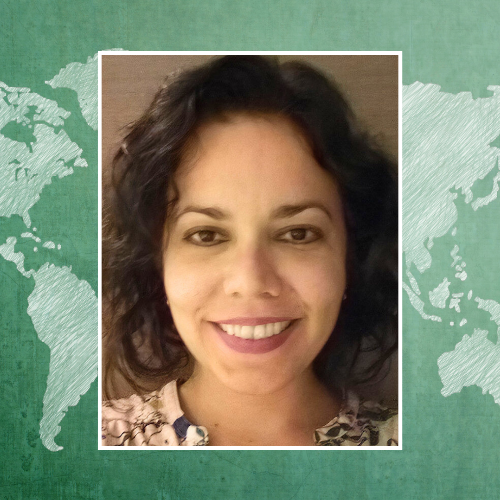BLOOMINGTON, Ill. — Barbara Galindo, an activist, professor and researcher specializing in socio-environmental issues in Latin American culture, is visiting Illinois Wesleyan this week to share her experience with campus.
Barbara Galindo holds a Ph.D. in Hispanic Languages and Literatures from the Department of Spanish and Portuguese at the University of California, Los Angeles (UCLA). Currently, she is working as an American Council of Learned Societies Emerging Voices Postdoctoral Fellow in Race, Ethnicity, and Indigeneity at the Institute for Research in the Humanities (IRH) at the University of Wisconsin-Madison.
During her visit to campus Feb. 7-10, she will speak to several classes about the harmful effects of mining in urban areas. At 7 p.m. on Wednesday, Feb. 7, she will present a film in Beckman Auditorium at The Ames Library titled “La Mina Del Diablo (The Devil’s Miner).”

Galindo will also present a public lecture at 4 p.m. on Thursday, Feb. 8, in Beckman Auditorium titled “Tortured Cities: State-Corporate Mining and Slow-Motion Urbicide in Peru and Beyond,” followed by a reception.
Galindo said she is looking forward to exchanging ideas with students, faculty and community members who are interested in environmental topics. She hopes to encourage students to identify struggles in their own communities that could lead to impactful research opportunities, and to showcase the power of interdisciplinary training and multilingualism.
“I hope that students and the IWU community have a good idea (from the discussions) about how the expansion of modern Western mining primarily affects racialized communities in the global south,” said Galindo. “Moreover, I believe that it will be great to make connections between the mining issue and climate change, as well as learn more about Indigenous perspectives on these issues.”
Galindo’s research specializes in 20th- and 21st-century Latin American cultural production, with an emphasis on the Andean and Amazonian regions. Her teaching and research examines the socio-environmental phenomenon in Latin America by exploring the relationships between ecology, race and indigeneity, space/place and time, biopolitics, health and human rights.
Her interest in raising awareness about social inequalities and environmental harm is connected to her family roots. Born and raised in small towns of Northeastern Brazil, Galindo grew up listening to stories of her grandmother who was a drought refugee from the state of Pernambuco and her great-grandmother who came from a village in the territory of the Xucuru do Ororuba Indigenous people.
“These intersecting identities significantly forged my experience as a first-generation university student, raising my awareness of the deep-rooted social inequalities and ongoing colonial power relations prevalent in Brazilian society,” said Galindo.
She has lived and worked in the Peruvian Amazon, learning the Quechua language to help compile narratives of the Kichwa people as a way to keep their native language and culture alive. She has connected with female anti-mining activists who serve as further inspiration for her work, including women in the Central Andes who advocated for communities displaced by mining and children suffering from cancer and heavy metal poisoning due to nearby activity by mining corporations.
Carolyn Nadeau, Byron S. Tucci Professor of Spanish, said Galindo’s experience made her a perfect candidate to invite to campus as part of a scholar-in-residence program made possible by the Undergraduate and International Studies and Foreign Language (UISFL) grant received by IWU in 2023.
“Her interdisciplinary work develops a cultural critique of contemporary extractivism and the climate crisis that conceptualizes the mining space as a historical and cultural matrix of longstanding disabling, eco-genocidal, and urbicidal extractivist practices worldwide. This area of research engages with many different fields of study and complements well what many faculty are discussing in classes,” said Nadeau.
Nadeau believes that Galindo’s visit and further programming through the UISFL grant will advance Illinois Wesleyan’s mission of preparing students to live and work as responsible citizens in a globalized society.
“As we begin to emerge from the enclosures of the pandemic and consider once again the benefits of high-impact learning, like bringing international scholars to campus and traveling to take courses abroad, it is the hope of the UISFL grant committee that students, faculty and staff at IWU will enjoy these opportunities that this UISFL grant, 'Building Capacity to Increase Global Engagement across the Curriculum,' led by Carmela Ferradáns, is providing our campus community,” said Nadeau.